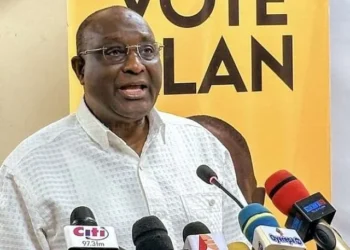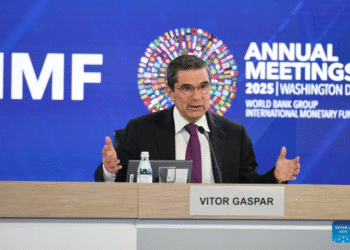The Institute of Fiscal Studies (IFS) has ascertained that Ghana’s fiscal economy is in a difficult condition, as a result of government’s incapacity to mobilize adequate revenues, re-expenditure management problems and government’s resort to extra-budgetary fiscal activities.
In its recent fiscal evaluation of the economy of Ghana, IFS indicated that government’s revenue performance has been poor over the past eight years.
According to the economic Think Tank, average growth rate of total government revenue and grants has declined sharply, in both nominal and real terms.
However, the average growth dipped to 3.8% between year 2013 and 2016 followed by 4% between 2017 and 2020.
IFS further noted that average growth rate of total government revenue and grants experienced a growth of 7.1% between the year 2005 and 2008 and 18.7% between 2009 and 2012.
“In fact, for the past 8 years, real growth of total revenue and grants has fallen below real Gross Domestic Product (GDP) growth”.
IFS
IFS’s recent assessment also reveals that “currently, two expenditure items consume [more of] the entire government revenue; Sum of employee compensation and debt service as a proportion of government revenue”.
In addition to the two expenditure items, it indicated that the government has other spending obligations which includes transfers to statutory funds, purchase of goods and services and capital expenditure, and arrears clearance.
“Presently, these obligations cannot be met without resorting to borrowing as employee compensation and debt service more than absorb all the available revenue.”
IFS
Aside the challenges associated with revenue and expenditure, IFS explained that government’s resort to extra-budgetary fiscal activities is another difficulty.
Per IFS assessment, extra-budgetary fiscal activities consist of bonds issued for the financial sector intervention, energy sector debt clearance (example ESLA bonds and payments to IPPs) and borrowings undertaken by statutory funds (example Road Fund and GETFund) through collateralization of portions of government revenue.
“If these borrowings and spending were accounted for within the national budget, the fiscal deficit ratios would be far more than the officially declared ones in recent years. Indeed, the extra-budgetary fiscal activities have added to the revenue and expenditure difficulties to cause rapid debt build-ups directly and indirectly.”
IFS
Debt-to-GDP ratio inaccurate measure of debt burden
The Institute of Fiscal Studies explained that debt service to revenue ratio is more vital than debt to GDP ratio.
Based on its research, it is an imprecise measure of debt burden, since a country may find it difficult to raise enough revenue out of its GDP and borrow at higher interest rates than others.
“In fact, the proportion of revenue used to service debt (debt service to revenue ratio) is the more appropriate measure of debt burden”.
IFS
Irrespective of the debt seeming moderate based on the debt to GDP ratio, IFS consequently labelled Ghana’s debt service to revenue ratio as alarming.
Moreover, IFS assessment reveals that “Ghana’s high cost of borrowing plus low revenue mobilization explain its high interest burden.”
Meanwhile the economic Think Tank declared that “Ghana has the 3rd highest interest payment burden among 118 countries in the world” explaining that “Interest burden has risen at breakneck speed.”
Sinking gov’t investment expenditure
In its research, IFS uncovered that the foremost impact of this fiscal condition is decreasing government investment spending.
Per its findings, the declining investment spending will weaken the country’s long-term economic growth and development.
IFS further cited that the government’s investment expenditure, as a share of revenue, had fallen from 29.3% in 2009 to 16.9% in 2020. Prior to the decline in 2020, it stood at 9.9% and 11.5% in 2018 and 2019.
The Think Tank also mentioned that Ghana’s public finances are in a very difficult state as revenue mobilization is now very weak, whilst serious expenditure management issues and extra-budgetary fiscal activities have added to the revenue and expenditure issues to cause sharp debt build-ups.
As a result, IFS advised that the country’s expenditure, revenue and extra-budgetary issues need to be addressed straightaway in order to alleviate the high rate of debt service cost and enhance public investment for accelerated growth and development.
Speaking on the extra-budgetary fiscal activities, IFS also pointed out that the rise must stop. It further recommended that all transactions should be brought and managed within the limits of the national budget.
Finally, the economic Think Tank urged that there is a need to increase revenue mobilization intensively.
Read also: Okudzeto speaking out of inexperience- Andy Appiah-Kubi






















